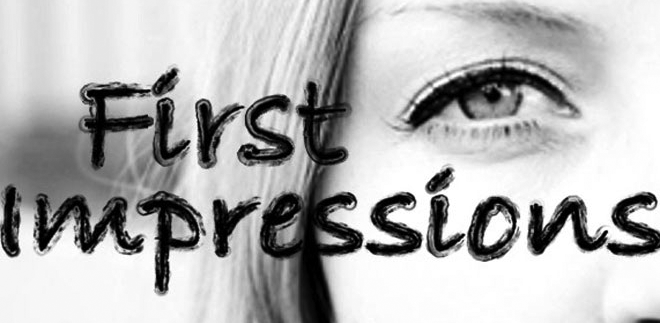Judging Your First Impressions
By Morag Barrett on August 13, 2013
Posted by Morag Barrett | August 13, 2013Judging Your First ImpressionsWe are told from a young age that we shouldn’t judge others, that we should get to know the other person and get beyond first impressions. But is it really that easy to do?We are bombarded with information, stimuli and data 24×7 and our brains have evolved to manage this by processing information at the subconscious and conscious level. By the time we are even aware of our thoughts and can articulate them, an unconscious opinion based on your appearance, your body language, your demeanor, your mannerisms, and how you are dressed has already been processed and formed.As humans, we’ve judged situations for our entire existence to identify possible threats and danger. In earliest times, if something looked dangerous, it probably was. If a sabre toothed tiger appears you run away, you don’t stop to consider the situation. When we touch a hot plate we automatically recoil to avoid being burnt. These reactions have helped to keep us safe, to keep us alive. However, if we have judged things like this for thousands of years, how can we be expected not to judge situations and other people today?Research into how the brain works has helped to understand that it is possible for people to consciously believe they are being open-minded and not biased for or against others, while at the same time acting on subconscious prejudices they are not even aware of. I came across this short video that underpins the concepts of first impressions and the judgements we make:Even in watching this film my guess is that you will have made judgements – about the couples who chose not to sit down – that they chose not to do so because of the “scary biker dudes” maybe coupled with a “That couple were so narrow-minded”. This may have been true but what about these other explanations:What if they chose not to sit down simply because the cinema was full? The idea of 140+ other audience members eating popcorn, rustling their sweet wrappers or slurping their diet coke during the movie might make me pause, and it would have had nothing to do with their dress or appearance.A friend of mine suffers from (mild) claustrophobia, sitting in a full theater would likely trigger a panic attack, a half empty one would not, her choice to wait for the next movie show time has nothing to do with WHO is in the auditorium, just how many people are there, and is perfectly reasonable.I am sure that you can identify other explanations as to why someone may not sit down. However, our hard-wiring seems to lean towards the “worst case scenario” story, one that helps us to anticipate and avoid possible threats or danger, but may also result in unhelpful judgements about others, and as a result influence our behavior.So what’s the answer?Making conscious and (more critically) unconscious judgements about situations is what has kept the human race arrive for millenia. It is part of our DNA and in my mind, not something that goes away just because we wish it to. The advice is toHold judgements, assumptions, and the stories we tell ourselves lightly;Remain open to and explore other explanations;Be respectful towards others and ourselves;Ask questions that open up the possibilities (rather than judgements that narrow down our perceived options).These tactics provide perspective and more importantly options and informed choice as to what action we choose to take moving forward.“When you meet a man, you judge him by his clothes; when you leave, you judge him by his heart” – Russian ProverbRelated ArticlesCultivating Winning RelationshipsWe’ve all worked with people that we dislike or find irritating and frustrating to be with. The person whose ego is so large the office has to install double doors to get their head through, the colleague who just can’t stop talking; about anything but work, the colleague who carries…March 27, 2012In "Cultivating Winning Relationships"Cultivate@Work: Relationship with ourselvesWelcome to the Cultivate@Work Roundup. We scour the Internet for stories and ideas of how people cultivate winning relationships at work and share them in this summary. It’s perfect for anyone interested in applying the ideas and techniques from Cultivate. The Power of Winning Relationships by SkyeTeam CEO Morag Barrett.…September 27, 2016In "Cultivate@Work"Cultivate@Work: Overcoming self-doubtWelcome to the Cultivate@Work Weekly Roundup. We scour the Internet for stories and ideas of how people cultivate winning relationships at work and share them in this weekly summary. It’s perfect for anyone interested in applying the ideas and techniques from Cultivate. The Power of Winning Relationships by SkyeTeam CEO…March 3, 2016In "Cultivate@Work"Tags »Cultivating Winning RelationshipsEQTrustvalues Share1
